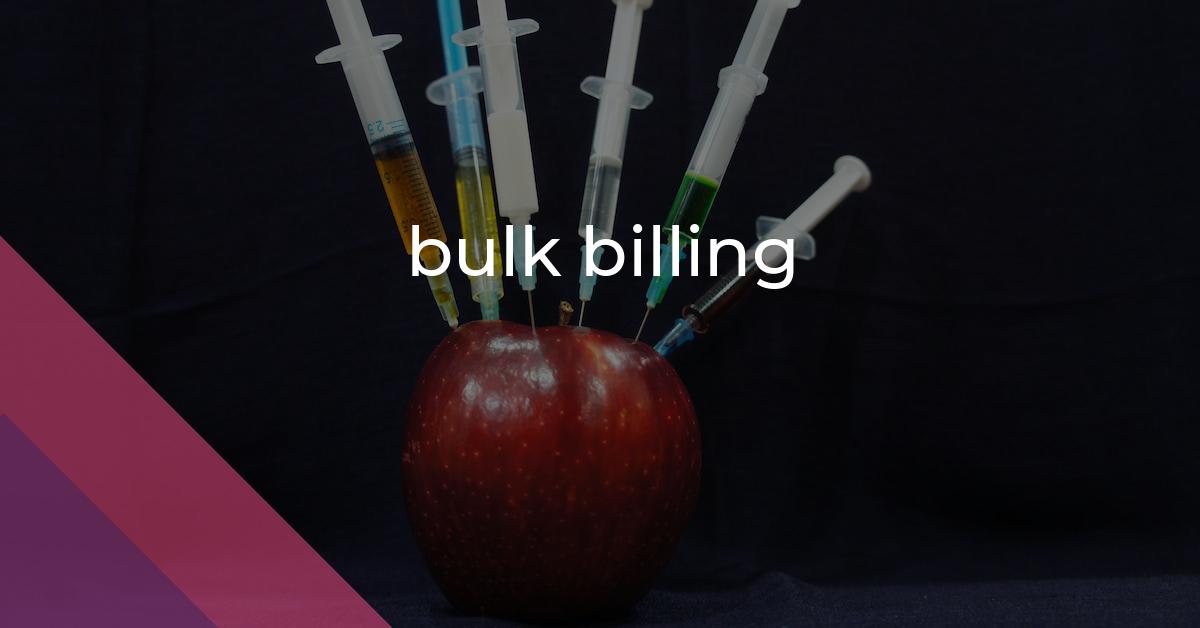bulk billing: Idiom Meaning and Origin
What does ‘bulk billing’ mean?
Bulk billing means billing the entire cost of a service directly to Medicare. Patients don't have to pay for the service upfront and only need to present their Medicare card.

Idiom Explorer
The idiom "on one's bill" means to pay for something oneself, without any assistance or help from others.
"In the raw" means in a natural or unprocessed state, without any refinements or alterations. It can also refer to being naked or exposed without any cover or protection.
The idiom "in the hospital" means that someone is currently receiving medical care in a healthcare facility due to an illness or injury.
The idiom "in the buff" means being completely naked, without any clothing on.
The idiom "great deal" means a large amount or quantity of something. It is used to indicate that there is a significant or considerable extent or degree of something.
A grease payment is a bribe or illegal payment made to someone in power in order to gain an advantage or get something done, often used in official or bureaucratic situations.
The idiom "grand total" means the final sum or amount, usually of a series of numbers or quantities, representing the total or overall result.
The idiom "good value" refers to something that is worth the money spent on it, providing a high quality or benefit relative to its cost.
The idiom "go halves" means to share the cost or responsibility of something equally with someone else.
The idiom "go halfsies" means to split the cost or share something equally between two people.
Unraveling Bulk Billing's Essence
The idiom *bulk billing* is primarily used in Australia and refers to a payment method in the healthcare system. In Australia, bulk billing is a process where doctors or medical practitioners accept the Medicare benefit as full payment for their services. When a patient is bulk billed, they do not have to pay any out-of-pocket expenses for the medical consultation or treatment.
This system of payment has been in place in Australia since the introduction of Medicare in 1984. It aims to provide affordable healthcare to all Australians by ensuring that medical services are accessible without adding a financial burden.
By providing bulk billing, doctors and medical practitioners receive direct payment from the government through Medicare for their services. This eliminates the need for patients to pay upfront and seek reimbursement from Medicare later.
Under the bulk billing system, doctors may choose to accept the Medicare benefit as full payment or charge an additional fee known as a "gap." If a doctor charges a gap, the patient will be responsible for paying the difference between the Medicare benefit and the total fee.
Bulk billing is prevalent in primary care settings such as general practitioners, but it is not as common for specialist services. Some doctors may choose not to bulk bill certain procedures or consultations due to various reasons, including the complexity of the service or the potential for a higher fee.
Despite its benefits, bulk billing has also faced challenges in Australia. The increasing costs of healthcare and the Medicare freeze, which limited the increase in Medicare rebates to doctors, have put financial pressure on healthcare providers. This has led to a decline in the availability of bulk billing services, causing concerns about access to affordable healthcare.
The idiom *on one's bill* is related to bulk billing as it emphasizes the fact that under this payment method, patients do not have to pay any out-of-pocket expenses for the medical consultation or treatment. The bill is covered entirely by the Medicare benefit, alleviating the financial burden on individuals seeking healthcare services.
The idiom *foot the bill* is also related to bulk billing as it highlights the responsibility of the government to cover the cost of healthcare services through Medicare. Instead of individuals having to pay for their medical bills, the government "foot the bill" by directly reimbursing doctors and medical practitioners who participate in the bulk billing system.
The idiom *bulk billing* refers to a payment method in the Australian healthcare system where doctors accept the Medicare benefit as full payment for their services. It aims to provide accessible and affordable healthcare to Australians. While it is not commonly used in the United States, understanding this idiom sheds light on the distinct approach to healthcare payment systems in different countries.
Example usage
Bulk billing can be used in a sentence in the following examples:
- "I was delighted to find a doctor who offers bulk billing, as it saved me a lot of money on my medical expenses."
- "The healthcare center provides bulk billing services, which means that patients do not have to pay any out-of-pocket expenses for their consultations."
- "It is common for optometrists to offer bulk billing for eye examinations, allowing patients to receive the necessary care without any additional costs."
Bulk billing is an idiom often used in healthcare contexts. It refers to a billing method where the medical service provider directly bills Medicare or an insurance company for the full cost of a patient's treatment or consultation. This means that patients who receive bulk billing services do not have to pay any out-of-pocket expenses for their healthcare. It is a convenient option for individuals who may not be able to afford the upfront costs of medical treatment or who do not have private health insurance.
More "Healthcare" idioms



